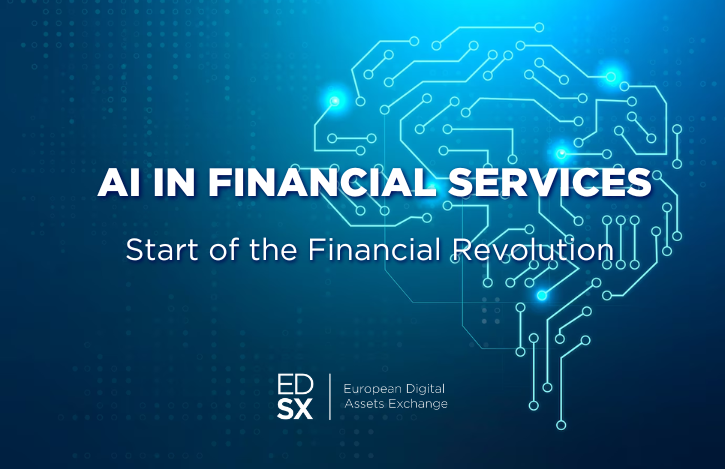The financial sector is experiencing a significant transformation driven by the rapid integration of artificial intelligence (AI) technologies. It creates a strategic imperative for professional investors. In Germany, financial institutions are leading this charge, leveraging neural networks and deep learning algorithms to overhaul credit assessment, data analysis, fraud prevention, and process automation. However, despite the vast opportunities, a mere 25% of executives feel sufficiently equipped to embrace the impending AI revolution. This underscores a critical disparity between acknowledgment and preparedness. Among the key areas of AI application, conversational AI in financial services emerges as a promising frontier. It facilitates personalized customer interactions and streamlining service delivery.
Key Areas for AI Application in the DACH Region
Executives in the DACH region identify key areas for AI application, focusing on digital efficiency, cost savings, and regulatory compliance. While 55% explore AI in emerging domains like chatbots and automation, there’s an evident oversight in harnessing intelligent data analysis for robust risk assessment.
Challenges hindering widespread AI adoption include a lack of data (69%), budget constraints (67%), and a shortage of in-house AI expertise (64%). Ambiguity persists around integrating AI seamlessly into daily operations, assigning departmental responsibility, and establishing effective management structures.
Disparities within the sector underscore a low priority for incorporating AI into established processes. The intricate nature of understanding advanced AI systems, especially those utilizing deep neural networks, drives it. Regulatory hurdles further complicate adoption, necessitating detailed explanations of AI-driven processes.
Global Trends: Doubling AI Spending and Escalating Demand
As the financial sector braces for substantial changes, recognizing the growing importance of AI. The imperative for professional investors is clear – invest in internal AI expertise to unlock its transformative potential and generate long-term value. Substantial investments in employee knowledge are advised to adeptly navigate the evolving AI landscape in the financial industry.
On a global scale, financial institutions and central banks are poised to double their investment in AI by 2027. It is projected to soar to $97 billion overall. The surge in demand for AI expertise is vividly illustrated by JPMorgan Chase’s staggering 3,600 AI job postings in June 2023. Additionally, the widespread adoption of conversational AI in financial services is evidenced by platforms like OpenAI’s ChatGPT. The platform boasts over 100 million users and plays a pivotal role in accelerating AI integration within the finance sector.
Concerns and Policy Responses to AI Risks
Hedge funds, investment firms, and central banks are strategically integrating AI across diverse functions, spanning marketing to risk management. However, concerns persist regarding potential risks such as theft, fraud, cybercrime, and the broader impact of AI on financial stability. Policymakers are actively navigating these challenges, with central banks exploring AI applications in supervision and risk detection.
US Securities and Exchange Commission Chair Gary Gensler’s warning about AI heightening financial fragility underscores the urgency for new policy interventions to address systemic risks. After all, questions linger about its efficacy in crises, potential biases, and the paramount need for ethical and secure implementation.
Success Factors in the Digital Banking Landscape
In emphasizing AI’s pivotal role in delivering a competitive edge, another source underscores its benefits in customer understanding. The technology improves internal process efficiencies, cybersecurity, and risk reduction in the financial services sector. Savvy investors recognize the strategic positioning of financial institutions to leverage AI for various financial products.
Success in the evolving digital banking landscape hinges on organizations’ prowess in swiftly accessing, processing, and analyzing data, responding promptly to analyses, and predicting and controlling autonomous IT systems. While AI is a powerful tool, it’s crucial to maintain a realistic perspective. Acknowledging its unique approach to creating computer programs is necessary. After all, AI is fully devoid of human-like consciousness.
Navigating the Dynamic Landscape of AI in Finance
Practical barriers to AI adoption are diminishing, thanks to the flourishing growth of AI as a Service (AIaaS) together with commodity AI services. Major cloud providers offer accessible platforms, tools, and ‘plug and play’ solutions, enabling organizations to deploy AI with minimal machine-learning experience.
Overall, the evolving role of AI in the financial sector presents a diverse array of prospects, obstacles, and transformative capabilities. The crucial task is to adeptly navigate this ever-changing terrain, integrating AI into their strategies while also addressing regulatory and ethical concerns. To maintain a competitive edge in the swiftly evolving financial industry, it’s essential to explore innovative avenues such as conversational AI in financial services, which enhances customer engagement and service efficiency.

Based in Zug, the platform is fully compliant with all Swiss laws related to financial intermediaries, banking, anti-money laundering, and organized trading facilities. Among its core values, there are innovative solutions through blockchain technology, which ensures security and liquidity.
EDSX is the first platform in Europe with primary and secondary markets for both institutional and retails. EDSX is a pioneering platform that employs the world’s leading technology to globally list security tokens in both primary and secondary markets, listing digital securities of real financial instruments to the public with a decentralized peer-to-peer exchange. Our goal is to fully engage every aspect of the financial revolution.
Do you have a question for us?
Send your query here:
[email protected]

